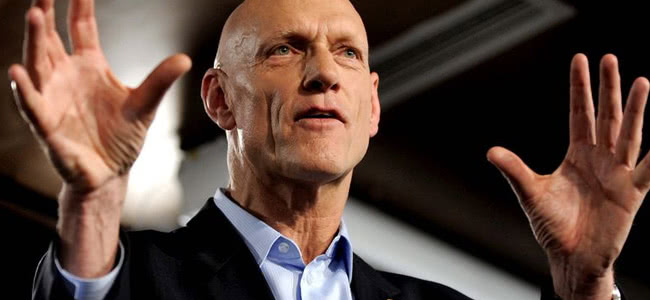As we here at Tone Deaf previously reported, NSW’s Labor Government was prompted by the dire state of live music in their home state to urge local councils to drop their ‘fun police’ act and start supporting live music venues.
The new initiative, which was put forward as a motion at the NSW Labor conference back in mid-July, is known as the ‘Labor Loves Live Music’ campaign.
Aimed at connecting with younger voters and called on local councils to enact planning controls that promoted live music and the protection of existing venues and live music culture.
Today, as The Music points out, Federal Minister and former Midnight Oil icon Peter Garrett officially announced the details of the ‘Labor Loves Live Music’ initiative last night, which is well-timed considering the upcoming elections this September.
The campaign policy will detail three main points in regards to the recognition of the importance of live music and the ‘fun police’ tactics that consistently threaten it. Namely, the introduction of planning controls to protect venues from noise complaints, particularly from residents who move into areas with established venues and therefore, a live music scene.
Along with the controls, the introduction of a ‘good neighbour’ policy, encouraging negotiation between residents and venues; and lastly implementing reformed state laws that better enforce building standards – specifically sound proofing – in areas with live music venues.
Garrett, an obviously outspoken supporter of Australia’s live music scene having declared a ‘state of emergency’ for Sydney’s CBD venues earlier in the year, said today that: “Over-regulation is killing our live music venues and to see great institutions suffer is very upsetting.”
The Minister, who currently holds the School Education, Early Childhood and Youth portfolio, used legendary local music venue the Annandale as a catalyst for the problems that live music venues face. The venue managed to snatch survival from the jaws of imminent closure with an innovative buy-a-brick scheme earlier in the year.
Garrett got behind the scheme wholeheartedly at the time, again emphasising it’s historical importance today saying it “has long been an incubator of the music industry.”
“We urgently need strong live music venues,” added the Midnight Oil frontman. “Our city should have heaps of places available for musicians of all genres to play. Even in a digital world, being on a stage in front of an audience is essential for most musicians to express their craft and build an audience, and of course make a living.”
State Labor’s new initiative that supports the live music scene was spearheaded with music campaigner John Wardle, who said that the poilcies of the new ‘Labor Loves Live Music’ campaign was based on the ‘agent of change’ principle; which essentially is determining responsibility for noise management.
Wardle told The Music that the agent of change principle was the key platform for the new Labor policy. “It’s also about looking at development control… that if you’re looking at building residential premises in night economy zones, then we should be looking at what type of measures are being taken.”
“If you’re going to make a night complaint against a venue, well have you got an appropriate level of constructions [on your property] for a night economy zone? And what sort of expectations have you got,” said Wardle.
Wardle also indicated that the policy is expected to be a major political platform for councillors in the upcoming elections, to be held Saturday 8th September.
Encouraging the recognition of live music as a key part of political and council discussion. “Live music’s always been newsworthy – it’s our identity, it’s so important,” says Wardle. “What’s fantastic about this policy is you’re going to see elected representatives across New South Wales for whom this is their policy position.”
It should be interesting to see if fellow musician-turned-politician Angry Anderson adopts some of Labor’s live music loving ethics.
The Rose Tattoo frontman, who says Garrett was a direct influence on his decision to moving further into political activism, is strongly considered for a seat in the NSW area of Gilmore after he announced he was joining the Nationals party in a bid to move into Parliament.
The 65-year-old singer has already made a name for himself as a staunch anti-carbon tax activist and has also spoken strongly of policies in supporting disadvantaged children, which has previously won him the Order of Australia Medal; but is obviously gaining notoriety for his position on immigration regulation as part of the second series of runaway SBS TV hit, Go Back To Where You Came From.




































